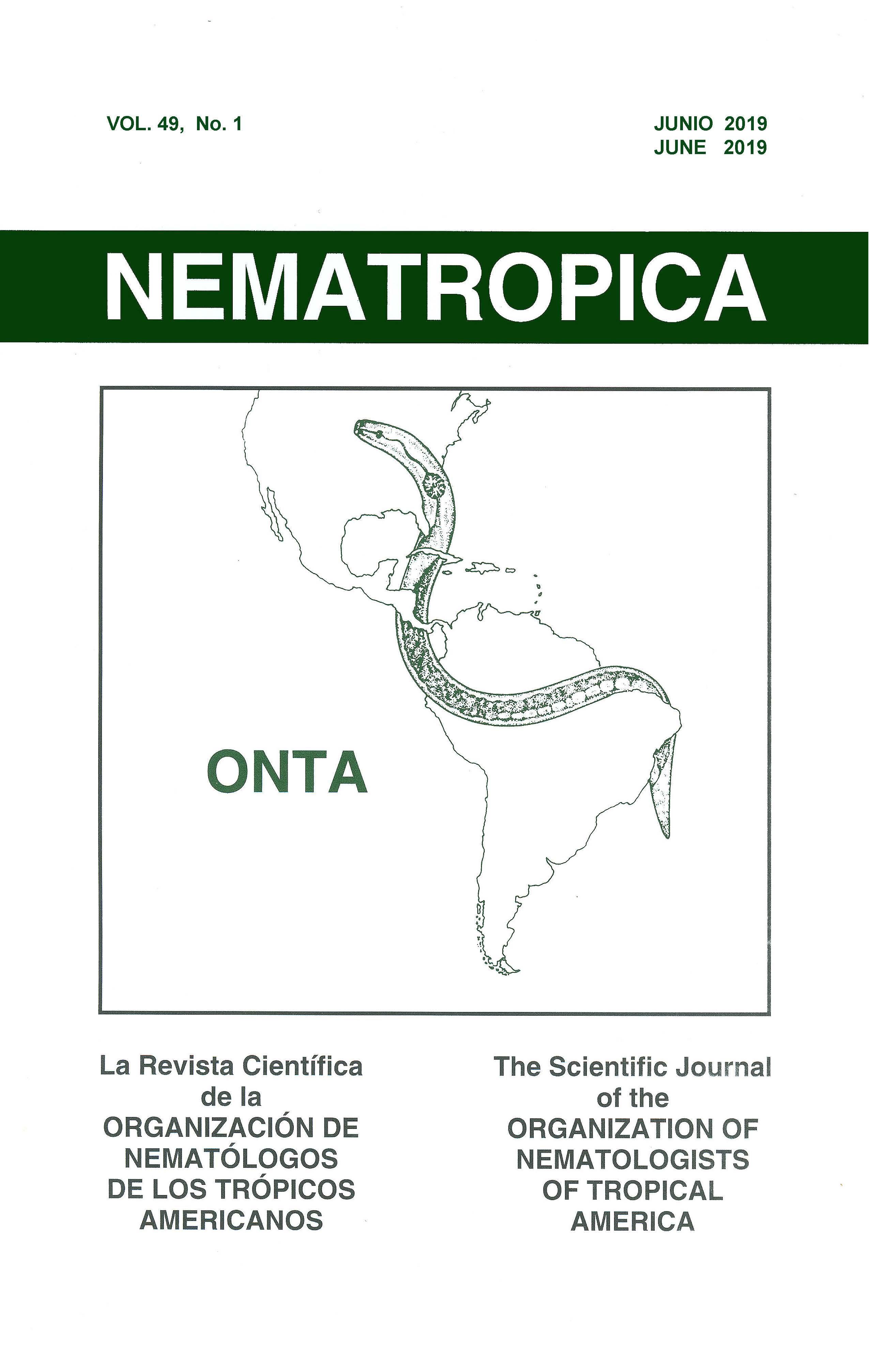SCREEN HOUSE RESPONSE OF SEVEN ELITE CASSAVA (MANIHOT ESCULENTA CRANTZ) VARIETIES TO MELOIDOGYNE INCOGNITA INFECTION
Abstract
In this study, seven cassava varieties were evaluated for their response to infection by Meloidogyne incognita in a pot experiment using 30-liter plastic pots. The cassava varieties - TMS 98/0505, TMS 01/1368, TMS 98/0510, TMS 30572, TME EB419, TMS 95/0289, and TMS 98/0581 were inoculated with either 30,000 or 0 eggs of M. incognita in a 7 x 2 factorial experiment and grown for 6 months in sterilized soil in a randomized complete block design with three replicates. Data were collected on plant height, stem girth, number and weight of root tubers, number of galls on feeder roots and tubers, number of juveniles per gram feeder roots, and foliage weight. Root systems were scored for galling on 1-5 rating scale. Assessment of plant tolerance to the root-knot nematode was based on gall index (GI) and tuber yield. Assessment of plant resistance to the root-knot nematode was based on nematode reproduction factor (RF). Galls were found on feeder roots and storage roots of infected cassava plants. Gall indices varied from 3 to 5 for infected roots. TME EB419 was tolerant to M. incognita with average tuber yield of 425 and 352 g/plant for inoculated and nematode-free cassava plants respectively, GI of 3.0 and an R of 2.6. Six of the cassava varieties were susceptible and intolerant to M. incognita with RF between 1.2 and 6.0, GI ranging between 4 and 5, and significant yield loss (P<0.05). Nematode infection (P<0.05) reduced plant height and fresh tuber weight in the cassava varieties except for the tolerant TME EB419 variety.

